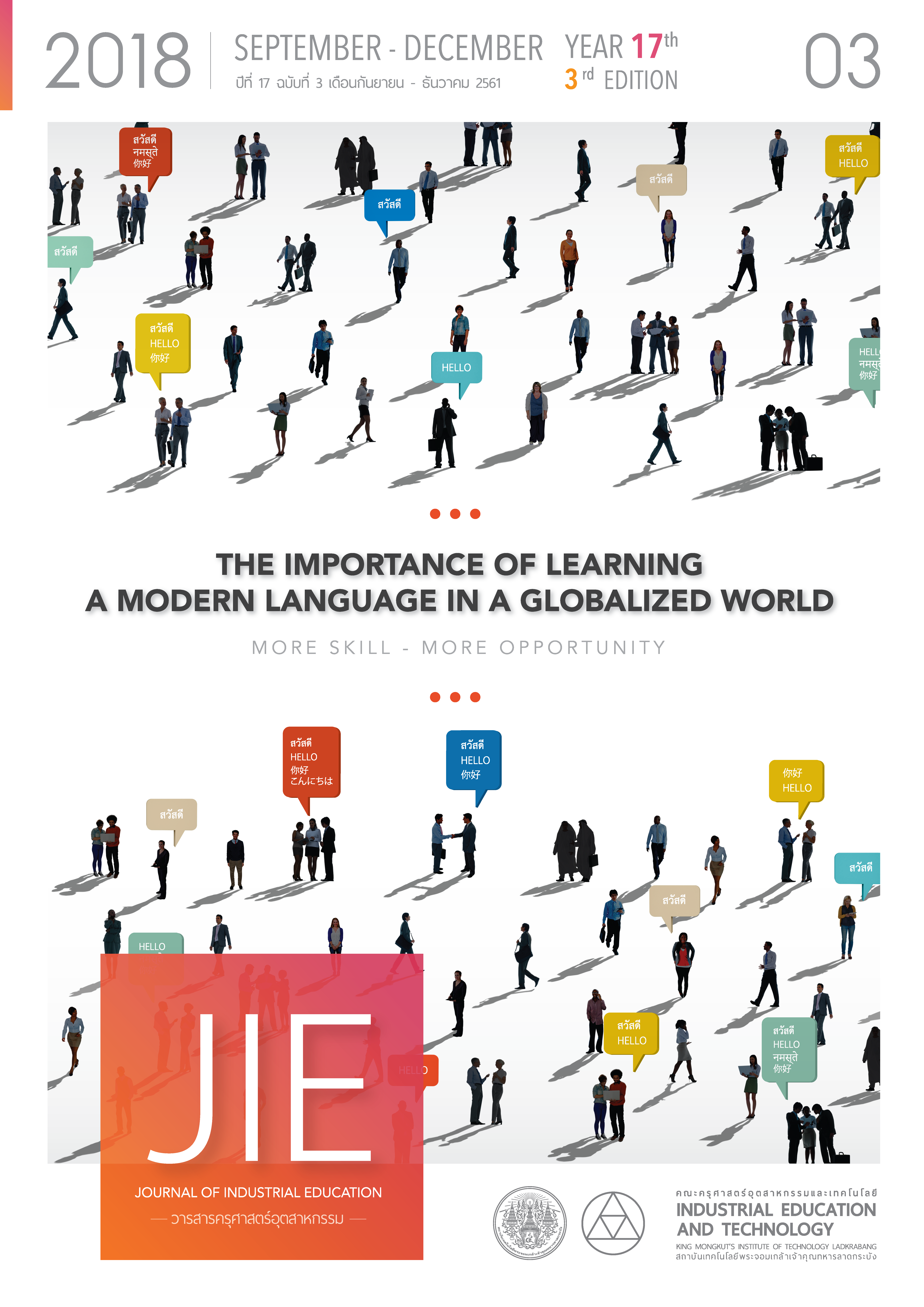THE AGRICULTURAL LEARNING CENTER AND TRANSITION TO THE DIGITAL SOCIETY
Keywords:
the agricultural learning center, the digital society, digital ageAbstract
The agricultural learning center is regarded as tool important to agricultural teaching/learning facilitation. It comprises various environmental conditions related to cultivation and animal domestication. Besides, there are environmental activities concerning with nature effecting agricultural activities. Integrated agricultural learning can be facilitated on farm, agricultural garden or even in school agricultural plots. The preparation of the agricultural learning center to be a living laboratory room with the integration of surrounding environment can enhance learners to gain direct experiences. Appropriate teaching/learning facilitation can impress learners due to their direct learning and experience. However, it should be consistent and related to current digital society having continually rapid change. This has an effect on learning process, experience and attitudes of the learner, the teacher, and attitudes of the learner, the teacher, and the community. Thus, it is essential that all concerned personnel be aware of self-development for sustainable learning.
References
[2] Thanapol Nagata Peryklang. Learning. Retrieved January 23, 2019, from https://www.gotoknow.org/posts/197420.
[3] Wikipedia. Learning Center. Retrieved January 23, 2019, from https://th.wikipedia.org/wiki.
[4] Khaemmanee, T. 2013. Science of Teaching: A Body of Knowledge for Effective Lerning Process Facilitation. 17th Edition. Bangkok: Chulalongkorn University Press. 512 p.
[5] Jaithiang, A. 2010. Teaching Principles. 5th Edition. Bangkok: Odean Store. 267 p.
[6] Saduak, W. and Poungsuk, P. 2014. Facilitation of Agriculture Subject Learning by Using the School Agricultural Learning Center. Academic seminar document. Ph.D. Seminar 3 subject. Agricultural Education program. Faculty of Industrial Education and Technoly, KMITL.
[7] Thanapanyaratchawong, C. (1988). Principles of Agricultural Education. Songkhla: Department of Agricultural Development, Faculty of Natural Resources, Prince of Songkhla University. 300 p.
[8] Office of the Education Council. (2009). Educational Reform in the Second Decade (2009-2018). Bangkok: Prigwan Graphic.
[9] Saduak W., Poungsuk, P., Phonpakdee, R. and Deeying, S. “Problem Condition in the Agricultural Learning Center Using at Praibuengwittayakom School, Srisaket Province, Thailand”. International Journal of Agricultural Technology. Vol. 13(7.2): 2117-2124.
[10] Saduak, A and Saduak, W. Praibuengwittayakom school. Srisaket province (Interview), 20th January 2019.
[11] Wikipedia. Digital data. Retrieved January 25, 2019, from https://th.wikipedia.org/wiki/ดิจิทัล.
[12] Sudbanthad, S. The Strategy on the Reform of Communicative System for Citizens of the Digital Age. Communication Arts program. Thammasat and Politics office, Office of the Royal Society. Retrieved January 27, 2019, from http://www.royin.go.th/wp-content/uploads/2018/01/pdf.
[13] Saowaluck Phanthabutr. Living Contemporarily in the Digital Age. The journal of social communication innovation. Vol. 5(2): 162-166.
[14] Pongsiri, N. Transition to the Digital Economy. HR Society Magazine (March 2018). Retrieved January 27, 2019, from https://www.dst.co.th/index.php?option=com_content&view=article&id=1229: transition-to-the-digital-economy&catid=29&Itemid=180&lang=th.
[15] Sakonsattayakorn, P. Ageing Society in the Digital Era. An academic meeting at Kanchanapisek Medical Center. Mahidol University on 5th April 2016.
Downloads
Published
How to Cite
Issue
Section
License
"The opinions and contents including the words in papers are responsibility by the authors."
"ข้อคิดเห็น เนื้อหา รวมทั้งการใช้ภาษาในบทความถือเป็นความรับผิดชอบของผู้เขียน"



